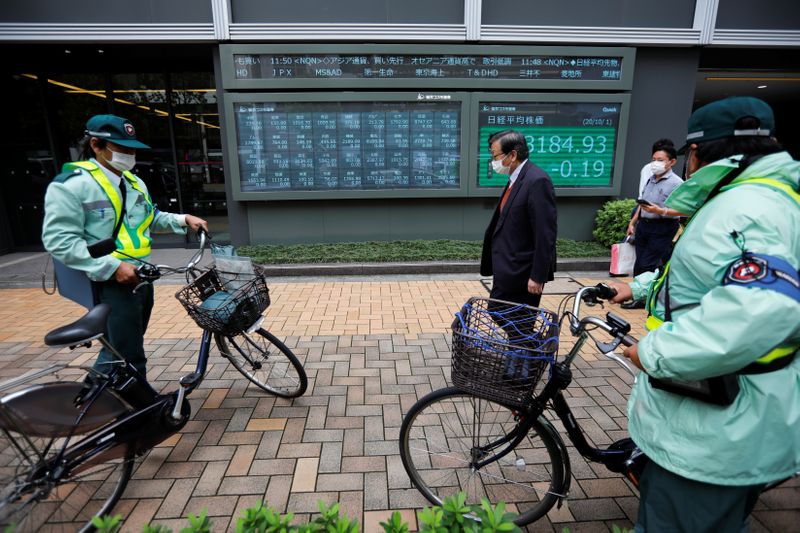This post was originally published on this site
https://i-invdn-com.akamaized.net/trkd-images/LYNXMPEG902ZZ_L.jpg
TSE said it does not know when the issue will be resolved. Bourses in Nagoya, Fukuoka and Sapporo, which use the TSE’s system, also suspended trading. The derivative-focused Osaka Exchange is not affected.
A statement from the TSE gave no further details.
Nikkei futures (JNIc1), which trade in Osaka, were last up 0.56%, in line with a rise in U.S. stocks overnight.
The Nikkei (N225) fell 1.5% on Wednesday, its biggest decline in two months, as an acrimonious debate between U.S. President Donald Trump and Democratic challenger Joe Biden increased concerns about an indecisive outcome from the presidential election in November.
“The timing is really just bad,” Takashi Hiroki, chief strategist at Monex in Tokyo, said about the trading halt, adding many market participants were hoping to buy back their stocks or increase their holdings following an overnight rise on Wall Street.
“As expected, U.S. stocks were unaffected by the U.S. presidential election, but gained instead on stimulus hopes. And that could have prompted a surge in stocks’ buybacks in early Japanese market. But the market was robbed of that chance.”
The TSE had been prone to system troubles in the past and was notorious for sluggish trading, but problems have been relatively rare since it expanded its capability with the introduction of a new system in 2010.
The TSE had suspended trading in October 2018 due to problems with its trading system.
In 2006, news of an accounting scandal at the then popular internet firm Livedoor Co sparked a massive sell-off. Unable to handle the rush of orders from panicked investors, the TSE had to curtail trading hours for three months.

